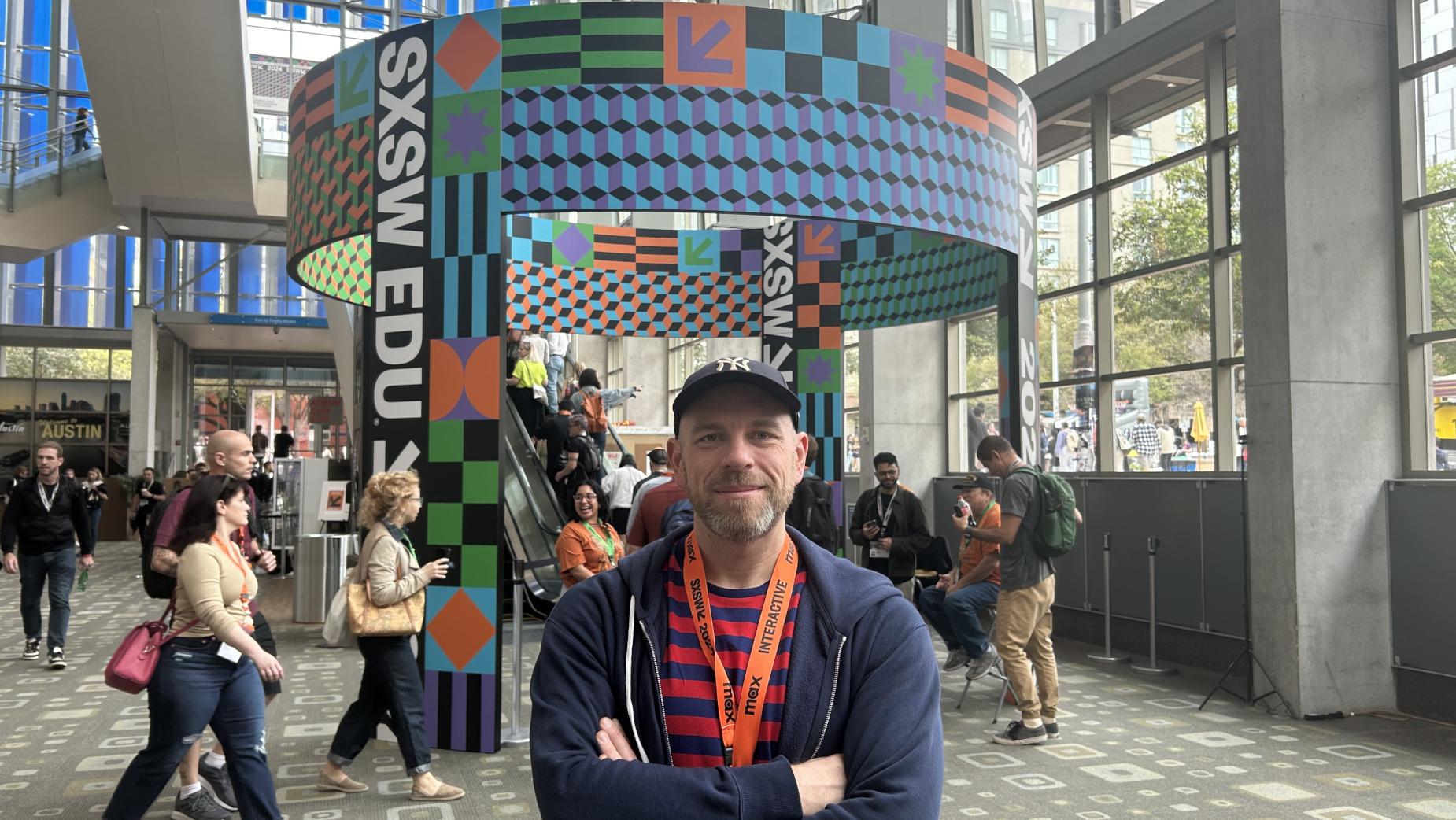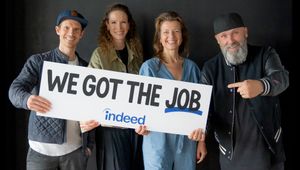
SXSW 2024: The Transition Generation

If you had to describe SXSW 2024 and the feeling we're leaving Austin with this year in a few words – you'd probably come up with an analogy that corresponds to the eve of a really big event or a drastic new phase of life. A long and exciting adventure trip with no specific destination, leaving behind much that is familiar. A pitch in an unfamiliar field, where you are still fine-tuning the details until the very end or a space mission where everything just feels three sizes bigger and more important. The overriding feeling is somewhere between anticipation, nervousness and sheer panic, because despite all the routine and habit – what we think we know and what is actually coming – there is a lot of uncertainty.
In many sessions, the speakers took to the stage and asked a very simple, albeit difficult to answer, question: "We all know something is changing right? You guys feel it as well?" We look back on a year of ground breaking advances in the field of artificial intelligence. Our children now use ChatGPT as a matter of course to do something as mundane as their homework, with technology that would have seemed like science fiction just a few years ago. And it's taken less than a year for this science fiction to feel very normal – and at the same time, we've only seen fractions of what we're likely to see in the coming years.

AI as the 'Everything Engine'
At the moment, it's impossible to talk about any area of technology or business that won't be affected by AI. But what made SXSW so special this year was that the conversations and assessments about AI often went beyond the buzzwords and simple truths and theses. For Amy Webb, AI is at the centre of a new technology super-cycle, on a par with electricity, the steam engine and the internet. Only this time we are not dealing with just one 'general purpose technology', but with three. Alongside AI, the Internet of Things will become the 'connected eco system of things'. And then there's biotechnology on top.
A sentence uttered in passing by Amy Webb caught our attention: "AI will run out of Internet soon." The current generative AI models are trained on data from the past, most of it millions and millions of texts and images from several decades of the Internet. But for the next evolutionary stage of AI and the change from Large Language Models (LLMs) to Large Action Models (LAMs), more and, above all, different data is needed. The best way to get it? Wearables that we carry with us 24/7, in all shapes and sizes: from smart rings to smart glasses, from AI pins to the devices Amy Webb unflatteringly dubbed 'face computers' such as the Apple Vision Pro. We will see a veritable explosion of devices in the coming months and years – with the aim of collecting as much personal data as possible at all times via a multitude of sensors. Where LLMs can predict what we will say next, LAMs will know what we will do next – perhaps even before we realise it ourselves.
Sounds exciting on the one hand – but on the other, it opens up a whole new dimension of problems around data protection, privacy and regulation. It will be up to us, as the 'transition generation', to guide this change and set it on the right course.
The Next Internet
If you were cynical, you could say that many market players, for whom blockchain, web3 and metaverse were the next big thing, have now retrained as spatial computing evangelists – but that wouldn't do justice to any of the technologies. A big learning in dealing with technology hype should be that no innovation has changed the world overnight. Not even those mentioned above such as electricity, the steam engine, the Internet or AI. Decades of groundwork, decades more until the deep penetration of really all areas of the economy and society are realistic.
So now we have Spatial Computing. Another hype or the first building block of a very big, very fundamental change that lies ahead? Most Spatial Web experts agreed on one thing: Apple's Vision Pro is a fascinating piece of hardware, but it's not yet the big hit intended for the end user. Or in the words of Cathy Hackl: "The Apple Vision Pro is $3500 worth of tech, it isn't a $3500 value in terms of content and applications for consumers." So far so good. However, if you think a few iterations of hardware and software further, add AI to the Spatial Web concept, and consider (pun intended) how the iPhone and Meta's VR glasses have evolved in just a few years, you can see the potential of the upcoming transition from the WWW to the mobile web to the Spatial Web.

At its core, Spatial Computing is the fusion of computer vision, extended/virtual reality, AI and the real world. It will enable us to interact and communicate with each other in entirely new ways and, above all, it will take our electronic companions' understanding of the world in which we move as humans to a whole new level. Space, audio, data, everything becomes usable, tangible, interactable. The use of off-screen digital applications, new forms of entertainment, retail, education – the physical world as a canvas for digital interaction. As with AI, it will be up to us to accompany and shape this transformation into the third major evolutionary stage of the Internet.
The Consumers of Tomorrow
So far, we have talked a lot about technology – but one of the big themes of every SXSW has always been the question of what technology actually does to us humans. While most of the marketing and business world is still trying to understand gen z, the next generation, those born between 2013 and 2024, are already waiting in the wings in the form of Gen Alpha. To understand them, it is necessary to look at the generation of their parents, whose youth and adulthood were marked by drastic events: 9/11, financial crisis, recession, pandemic, digital revolution, climate change – in short: uncertainty. Strongly involved in family decisions, transparent about finances, natural users of digital media – Gen Alpha is opinionated and decisive, including in their relationship with media content and brands.
In general, we are facing some drastic changes as a society: increasing mobility (globally, but also nationally/regionally), ageing societies, decreasing importance of the nuclear family, greater focus on sustainability, physical and emotional health. We are experiencing a fundamental change with challenges but also opportunities for housing and living models, consumer products and services, transportation and entertainment. Just as the broad lines of change have been mapped out in technology, we all know that fundamental changes will and must take place, but managing the transition and seizing the opportunities will be challenging.
And What About Marketing?
Many sessions in the marketing track of this year's conference were very tangible and practical in nature, in contrast to the often elusive, big transformation topics. On the one hand, this was a very refreshing insight. On the other hand, it left us with the uneasy feeling that, given the number of changes and the generally difficult economic situation, we are doing what we can for the time being for reasons of efficiency; the big picture can wait.

Moving away from traditional audiences to interest-driven communities; leveraging hype cycles around products, pop culture and personalities; tight brand management in an era of highly personalised campaigns and touchpoints; and co-creation with influencers and content creators: These are all issues that many CMOs are struggling to address in the face of cost pressures, the drive for efficiency and, as Accenture Song's Jake Brody criticises, often poorer product and service quality.
And here we come to the more medium- to long-term task: mending the often damaged customer-brand relationship, clearly differentiating your own brand in a world in which every type of content and communication feels increasingly the same and interchangeable – from Hollywood films to influencer campaigns – and dealing with new technology, from AI to the spatial web, are Herculean tasks that need to be mastered. It might be a good idea to take Noor Naseer’s (Basis Technologies) words from her 'Beyond the Buzz' session as a guide: "Focus on your own problems and don't worry about what others are doing." Or to put it more positively: By focusing on our own strengths and incorporating our own ideas and creativity, we can master this transition.















